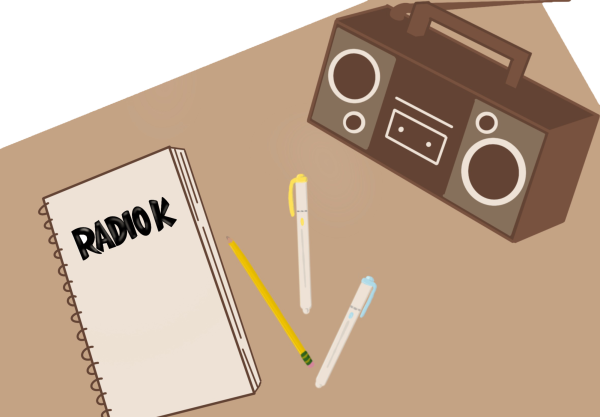Poet Jamaal May is a slam dunk
Award-winning poet Jamaal May visits Hamline to share his art
December 10, 2014
The GLC 100E lecture hall was packed and Hum-ming with energy last Tuesday night as the audience waited to hear poems from Jamaal May, a Detroit native whose debut book, Hum, has received critical acclaim. Published through Alice James Books, Hum won the 2012 Beatrice Hawley Award and was named an ALA Notable Book for Adults. In addition to being an award-winning slam poet, May has worked as a freelance audio engineer and taught poetry in public schools. Members of the Hamline community got a chance to hear him perform on Dec. 2, and could see Creative Writing Professor Katrina Vandenberg and MFA student Doc Burkard pick his brain in a public interview Dec. 3.
Some highlights included hearing May successfully recite a lengthy poem from memory. He admitted that he had never done so with that particular poem, but gave it a shot because he thought it was important for the audience to hear. He also discussed how his poems have impacted his audience; an especially poignant story concerned his poem “How to Get Your Gun Safely From Your Mouth.” A woman told May that she was able to prevent her brother’s suicide after giving him the piece to read. May said that since then he no longer considers the poem fully his— it belongs to his audience as well.
Since poets as successful as Jamaal May tend to have a way with words, we’ve compiled some of his best quotes from the two events:
“I look at a poem as a machine built of words— the idea that you’re building something. We’re always assembling the parts when we say we’re creating something.”
“[On the difference between written and performed poetry:]It takes different skill sets to make someone’s heart vibrate and to make someone’s mind vibrate.”
“Conversation about Detroit is never about the people; it’s always about cars and how Motown used to be here. And I wanted to say something about people, so machinery for me is this paradoxical way to talk about humanity.”
“Somebody told me that writers should always be in trouble.”
“I do think of my poetry as little word machines, and I think that metaphor just broadened into the overarching theme of the book…What people don’t understand is that the thing that’s beneath [the machine] is not just the machinery, it’s what the human has done with the machinery.”
“Poetry is the genre that exists between prose and song.”
“I’m always looking for the thing underneath the thing… trying to get to the center of gravity of the piece.”




